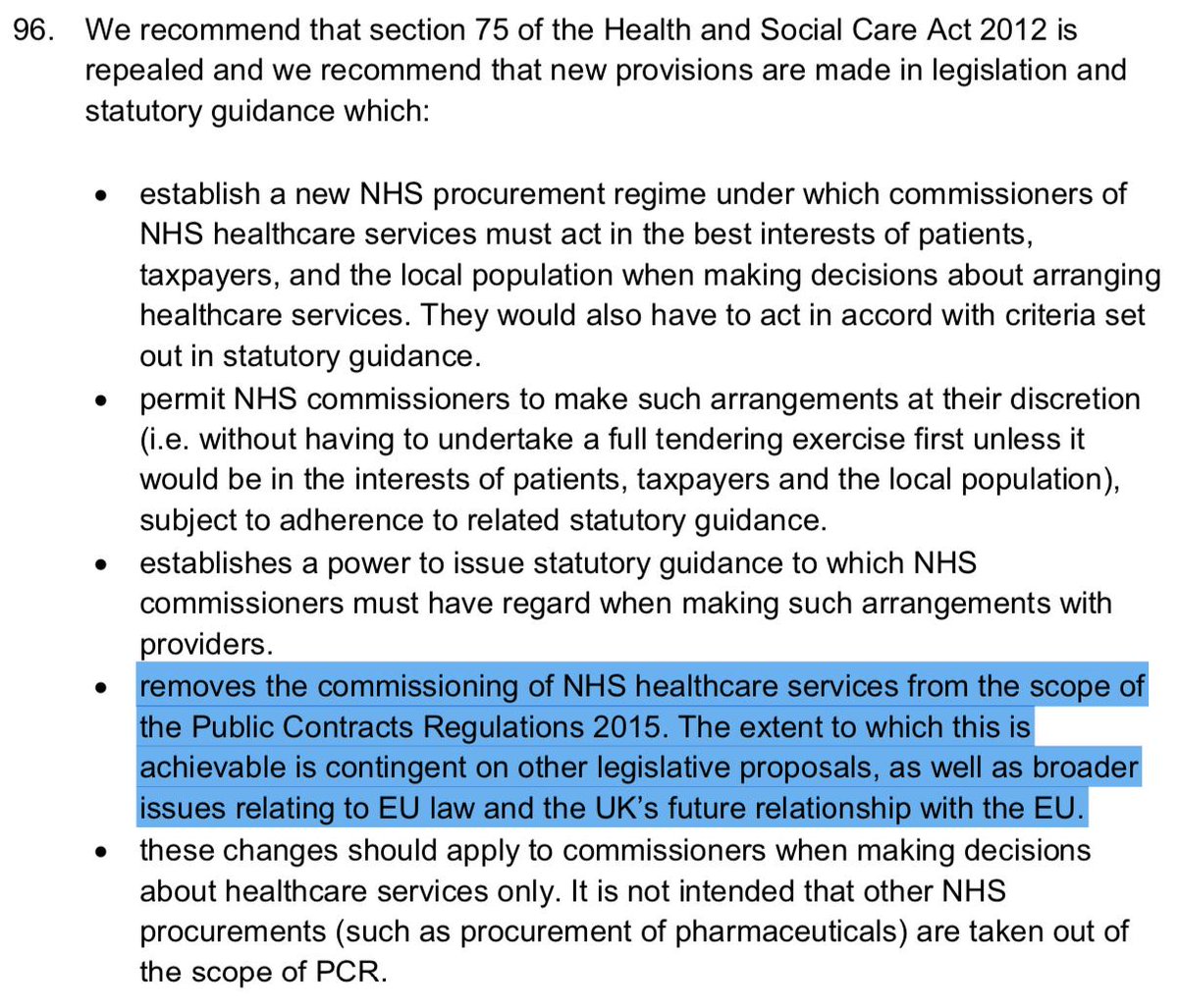I have recorded a series of short lectures on NHS commissioning and procurement for my blended teaching at the University of Bristol Law School this coming academic year. In case they are of any interest, I am sharing two of them here.
The first one covers the organisation and regulation of NHS commissioning and procurement and primarily concentrates on the commissioning of health care services. The second lecture covers the centralisation of ‘hospital procurement’ through the NHS Supply Chain. They should be accessible through the click-through images at the end of the blog post.
The two short lectures aim to provide a (hopefully) accessible introduction to the issues covered in more detail in the accompanying reading list, which mainly comprises the following papers for each of the topics:
1. Organisation and regulation of NHS internal market, with a focus on commissioning and procurement
A Maynard and M Dixon, ‘Should the NHS abolish the purchaser-provider split?’, BMJ 2016;354:i3825, available at https://doi.org/10.1136/bmj.i3825.
C Paton, ‘Garbage-Can Policy-Making Meets Neo-Liberal Ideology: Twenty-five years of redundant reform of the English National Health Service’ (2014) 48(3) Social Policy & Administration 319-342.
L Jones, M Exworthy and F Frosini, ‘Implementing Market-based Reforms in the English NHS: Bureaucratic coping strategies and social embeddedness’ (2013) 111(1) Health Policy 52-59.
B Collins, ‘Procurement and Competition Rules. Can the NHS be exempted?’ (2015) King’s Fund briefing, available at https://www.kingsfund.org.uk/publications/nhs-procurement-competition-rules.
M Guy, ‘Between “Going Private” and “NHS Privatisation”: Patient choice, competition reforms and the relationship between the NHS and private healthcare in England’ (2019) 39(3) Legal Studies 479-498.
P Allen et al, ‘Public Contracts as Accountability Mechanisms: Assuring quality in public health care in England and Wales’ (2016) 18(1) Public Management Review 20-39.
D Osipovič et al, ‘Interrogating Institutional Change: Actors' Attitudes to Competition and Cooperation in Commissioning Health Services in England’ (2016) 94(3) Public Administration 823-838.
P Allen et al, ‘Commissioning through Competition and Cooperation in the English NHS under the Health and Social Care Act 2012: Evidence from a qualitative study of four clinical commissioning groups’, BMJ Open 2017;7:e011745, available at http://dx.doi.org/10.1136/bmjopen-2016-011745.
M Sanderson, P Allen and D Osipovič, ‘The Regulation of Competition in the National Health Service (NHS): what difference has the Health and Social Care Act 2012 made?’ (2017) 12(1) Health Economics, Policy and Law 1-19.
D Osipovič et al, ‘The Regulation of Competition and Procurement in the National Health Service 2015–2018: Enduring hierarchical control and the limits of juridification’ (2020) 15(3) Health Economics, Policy and Law 308-324.
2. Centralisation of NHS procurement
A Sanchez-Graells, ‘Centralisation of procurement and supply chain management in the English NHS: some governance and compliance challenges’ (2019) 70(1) Northern Ireland Legal Quarterly 53-75.
J Meehan, L Menzies and R Michaelides, ‘The Long Shadow of Public Policy: Barriers to a value-based approach in healthcare procurement’ (2017) 23(4) Journal of Purchasing and Supply Management 229-241.
R Knot, ‘The Future of NHS Procurement? Look into your procurement strategy, not a crystal ball’ (undated), available at https://nhsprocurement.org.uk/the-future-of-nhs-procurement-look-into-your-procurement-strategy/#the-future-of-nhs-procurement-look-into-your-procurement-strategy.
Feedback and suggestions on additional readings most welcome: a.sanchez-graells@bristol.ac.uk.





